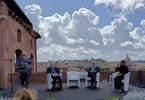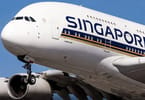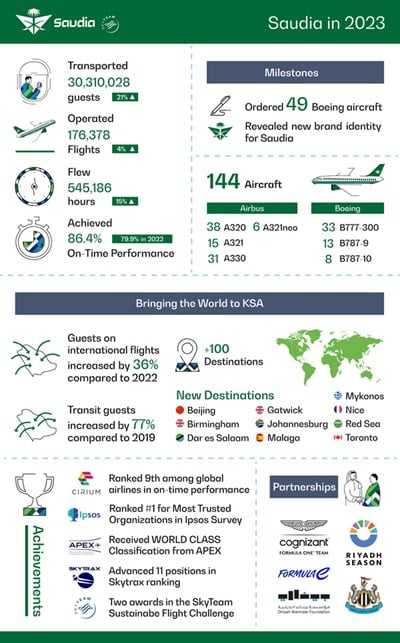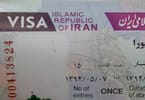The Tanzania Association of Tour Operators (TATO) has tabled before the country’s President, John Magufuli, what it believes to be nine top issues dearly impacting the tourism industry.
The TATO Chairman, Mr. Wilbard Chambulo, implored the State to treat the tourism industry as an export service when he got an opportunity to address the Tanzania National Business Council (TNBC) chaired by President Magufuli.
Mr. Chambulo also told the President; Prime Minister Mr. Kassim Majaliwa; and the Minister for Tourism and Natural Resources, Prof. Jumanne Maghembe; among other policy makers, to take all means necessary to streamline multiple taxes, licenses, and fees imposed on the tourism sector.
“Please, at least allow a minimum period of 12-months’ notice and participation of the tourism private sector before introducing new fees, levies, and other charges in a bid to create trust in the international tourism market and to remain competitive globally,” Mr. Chambulo insisted.
Tour operators are in dire need of streamlined taxes, given the high cost and multiplicity of the same, inhibiting voluntary compliance, according to the TATO Chief Executive Officer, Mr. Sirili Akko.
Indeed, an available report on assessment of the Tanzanian tourism sector indicates that the paperwork and administrative burden of complying with license taxes and levies place a heavy cost on businesses in terms of time and money.
Tour operators in Tanzania face over 32 different taxes, levies, and fees per year.
A tour operator, for instance, has to spend over 4 months on accomplishing regulatory paperwork, let alone procedures for renewing its license and paying mandatory taxes, consuming 745 extra hours each year.
The joint report by the Tanzania Confederation of Tourism (TCT) and BEST-Dialogue shows that the average annual cost of a local tour operator accomplishing the regulatory paperwork stands at $1,381.
Mr. Chambulo urged the government to create an investment-friendly and secure business environment in addition to addressing a skills gap.
“We also want the State to improve valid and accurate tourism industry-related statistics (on tourist arrivals) in a bid to help in making informed decisions,” he added.
TATO also further demanded the private sector’s mandatory involvement in the planning and implementation of a new and relevant international tourism marketing strategy for East Africa’s second largest economy.
Mr. Chambulo specifically wanted the private sector to be fully involved in reviewing the existing tourism policy in a bid to articulate a new vision and direction with a view of diversifying products and promoting new destinations within Tanzania.
TATO called for the Tourism Development Levy (TDL) to be used for the legally-intended drive, and that collection and disbursement of the same be made transparently, driven by decisions reached along with the tourism private sector.
More seriously, he pleaded with the State to consider lowering off-season park fees, removing single entry park fees and doing away with duplication of fees and levies between Wildlife Management Area (WMAs) and national parks.
While a national park is a state-owned land protected for the preservation of wildlife, a WMA, in turn, is an area of land communities exclusively set aside for wildlife habitat.
“Improvement of tourism infrastructure with emphasis on roads, supply of utilities and energy, and investors’ access to land for tourism development are also in our wish list,” Mr. Chambulo added.
He said the government ought to forge a strong partnership with the private sector in a bid to bring about sustainable and comprehensive anti-poaching measures, including a regular wildlife census, and to mitigate human-wildlife conflicts.
Tanzania has in recent years seen poaching practices growing at an alarming rate with illegal shipments of consignments of ivory impounded overseas increasing, despite the government and the international community jointly intensifying a crusade against the vice.
In 2015, for instance, law enforcers in Switzerland impounded 262 tons of elephant tusks allegedly originating from Julius Kambarage Nyerere International Airport, all valued at Sh826 million.
WMAs are increasingly becoming one of the surest weapons in the on-going anti-poaching crusade, as communities directly benefiting from receipts accrued from natural resources surrounding them effectively take part in it.
“Last, but not least, respect the integrity of the areas set aside for wildlife from being degazetted and used for other economic purposes, except tourism,” Mr. Chambulo concluded in his address to one of the highest public-private sectors’ organizations in the country.
PHOTO: TATO Chairman Mr. Willy Chambulo presenting before President John Magufuli
APA sing kudu dijupuk saka ARTIKEL INI:
- “Please, at least allow a minimum period of 12-months' notice and participation of the tourism private sector before introducing new fees, levies, and other charges in a bid to create trust in the international tourism market and to remain competitive globally,” Mr.
- Chambulo specifically wanted the private sector to be fully involved in reviewing the existing tourism policy in a bid to articulate a new vision and direction with a view of diversifying products and promoting new destinations within Tanzania.
- He said the government ought to forge a strong partnership with the private sector in a bid to bring about sustainable and comprehensive anti-poaching measures, including a regular wildlife census, and to mitigate human-wildlife conflicts.





















